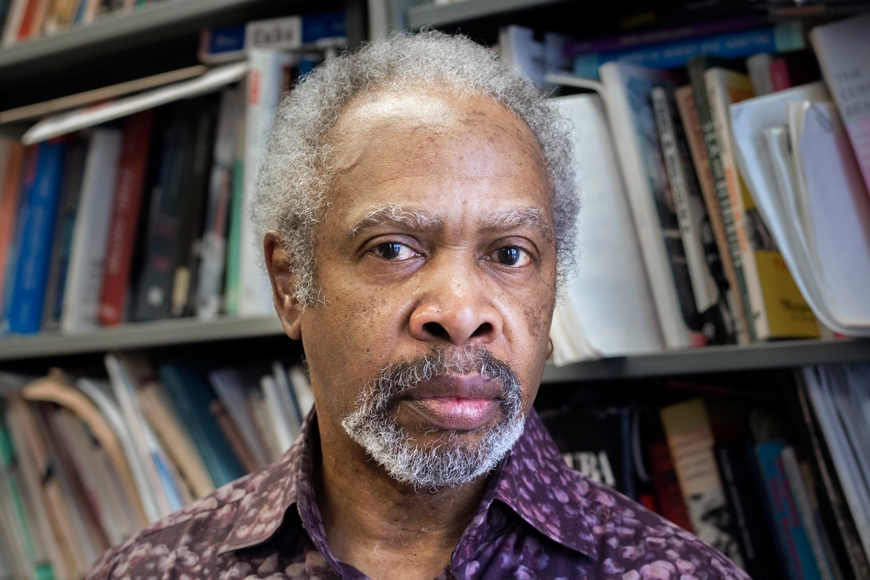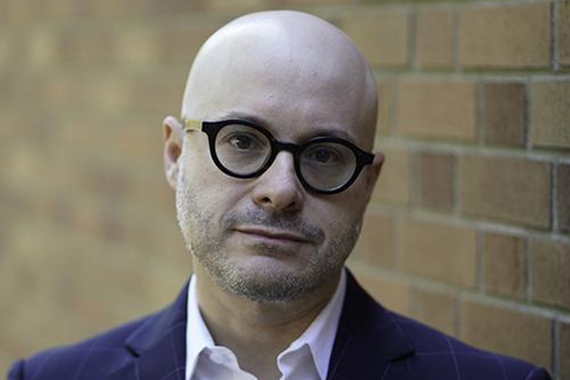Class and Politics with Professor August Nimtz
In the more than 30 comments that follow Professor August Nimtz’s Community Voices feature for MinnPost, readers debate the thought-provoking, and sometimes unsettling, analysis put forward. Many of the arguments focus on political differences between liberals and conservatives. But one comment brings a hearty laugh out of Nimtz.
“That’s one thing that is often surprising for my students,” Nimtz explains. “I’m not a garden-variety liberal.”
According to Nimtz, all of the work he engages in, from scholarship to his political activism, flows from the project of Karl Marx and Friedrich Engels, that is, engaging in real politics. “Everything I write is not just of historical interest,” Nimtz emphasizes. “I am always looking for ways to bring Marx and Engels into real politics and free them, half-jokingly, from the clutches of the academy where they tend to be, as a result, scholasticized and defanged.”
Historical, Political, and Present Publications
His book on Vladimir Lenin is the most recent example of how Nimtz brings the lessons of history into today’s politics. Published in 2014, and more recently distilled in an article for a special October 2017 issue of Science and Society, the two-volume Lenin's Electoral Strategy makes two original contributions, one about the past and one about the present.
Nimtz’ biggest historical takeaway, after pouring through Lenin’s Collected Works for a decade, was how much space Lenin dedicated to electoral and parliamentary work and the silence of scholars—friend and foe alike—around this work. Nimtz estimates that between one quarter to one third of Lenin’s collected works dealt with these questions, especially concentrated between 1905 and 1917 when the Russian monarchy legalized the Duma, Russia’s version of a parliament.
The two volumes shed light on how Lenin’s political project was connected to that of Marx and Engels, an insistence on independent working class political action, and the centrality of electoral and parliamentary work to the Bolshevik’s political organizing—not as an end in itself but a means to an end, the taking of political power.
However, current events are really what drove Nimtz to work on this project. Influenced by the debates raging in Tahrir Square and spaces elsewhere including the United States during the Occupy movement about “the ballot or the streets,” Nimtz was able to use his research into the history of the Russian Revolution to confidently argue for “both.”
He had to argue against what he coined as “voting fetishism,” the mistaken belief that the act of voting is the same as taking or exercising political power. Nimtz believes this is his original contribution to today’s politics, and it seems to be making an impact. The books are in the process of being translated into Arabic after being read by an Egyptian professor and political activist teaching at the University of Exeter in England. A Turkish edition of one of the volumes is now available. He recently ran into a University of Minnesota union activist who reached into his bag and pulled out the first volume. “Exactly the kind of people I intend the book for,” Nimtz says.
Staying Involved
“Sometimes I wish, not seriously of course, that real politics would slow down a bit so that I can focus on my scholarly work for a while,” Nimtz admits. His current project, what he calls “real-time political analysis,” compares how Marxists and non-Marxists responded to big events in motion. Marx and Engels vs. Tocqueville in relation to the 1848 revolutions, Marx vs. John Stuart Mill regarding the US Civil War, Lenin vs. Max Weber regarding the Russian Revolution, and Levin vs. Woodrow Wilson regarding the outcome of the First World War are the examples he’s exploring. The project has been put on hold multiple times so he can participate in current political debates.
The Minnpost article is one example of such debate, in which he argues that working class and organized labor struggles in the 1930s and 1940s and the Freedom Now or Civil Rights Movement of the 1950s and 1960s offer lessons for understanding politics today.
Another is the debate he entered with Ta-Nehisi Coates via an article in Monthly Review Online. Nimtz sees Coates, with his almost exclusive lens of racial identity, as writing off workers who were attracted to the Trump campaign in 2016. Nimtz’s political activism, spelled out in a 2016 Star Tribune op-ed, “A black socialist in Trump Country,” focuses on the need to engage all workers because he has “confidence that the working class is the only political force that can solve the crisis of capitalism.”
Even though very few students come into the courses he teaches sharing his political views and prescriptions, many come away impressed by his knowledge of the subjects he is teaching and the way he moderates discussion in an open and civil fashion. The multiple teaching awards he has won from the University testifies to that fact as do the responses to the University’s Alumni Attitude Survey including him as a professor that has had a significant impact on the experiences of students.
Nimtz’s advice to students moving into the workforce or into graduate school has stayed the same for many years: “Never lose sight of the laboratory of the class struggle, where real politics takes place—and why, unfortunately, our discipline missed the Trump phenomenon.”


